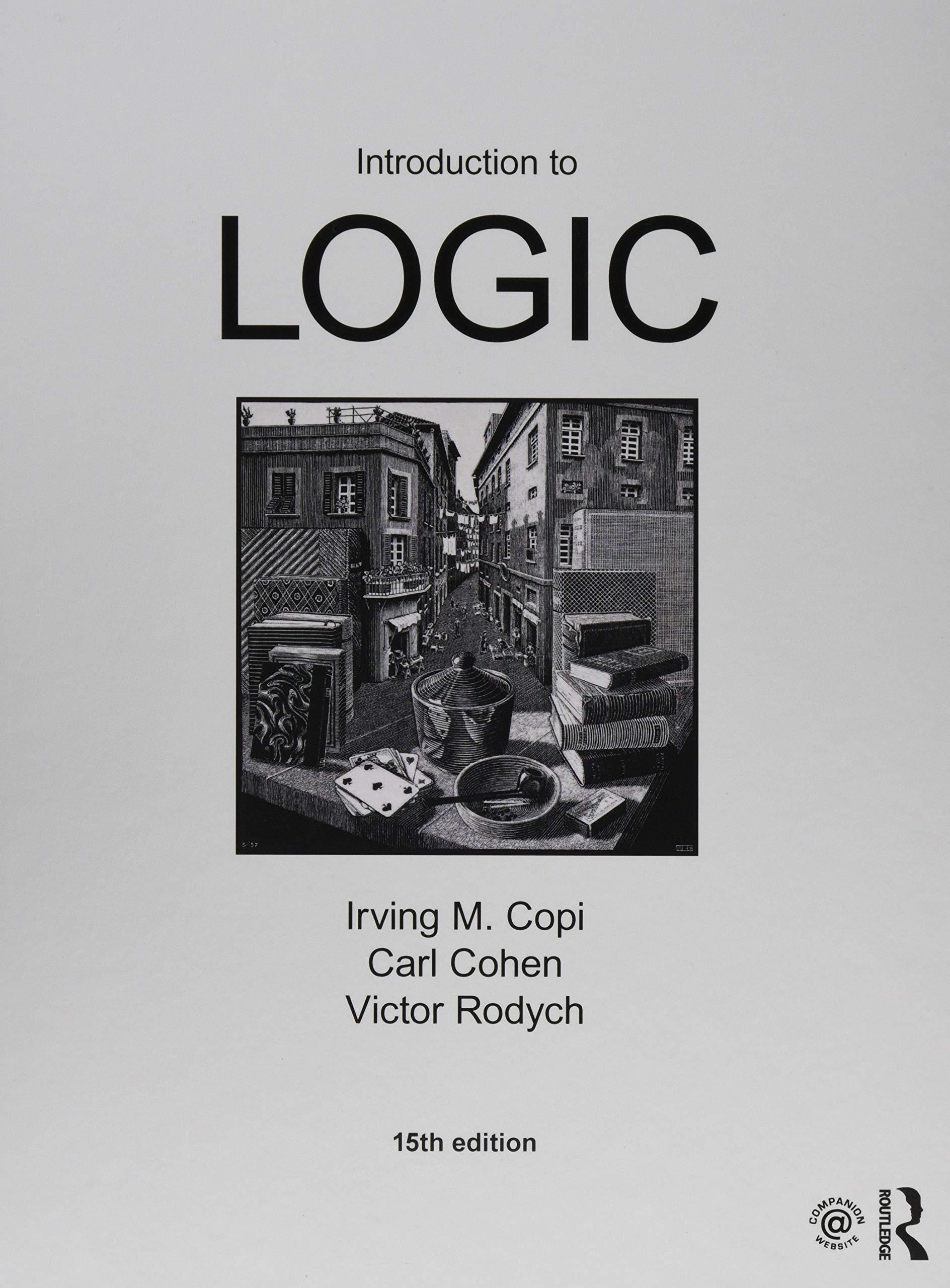Some of the following passages contain explanations, some contain arguments, and some may be interpreted as either
Question:
Some of the following passages contain explanations, some contain arguments, and some may be interpreted as either an argumaent or an explanation. What is your judgment about the chief function of each passage? What would have to be the case for the passage in question to be an argument? To be an explanation? Where you find an argument, identify its premises and conclusion. Where you find an explanation, indicate what is being explained and what the explanation is.
Changes are real. Now, changes are only possible in time, and therefore time must be something real.
—Immanuel Kant, Critique of Pure Reason (1781),
“Transcendental Aesthetic,” section II
Step by Step Answer:

Introduction To Logic
ISBN: 9781138500860
15th Edition
Authors: Irving M. Copi, Carl Cohen, Victor Rodych





